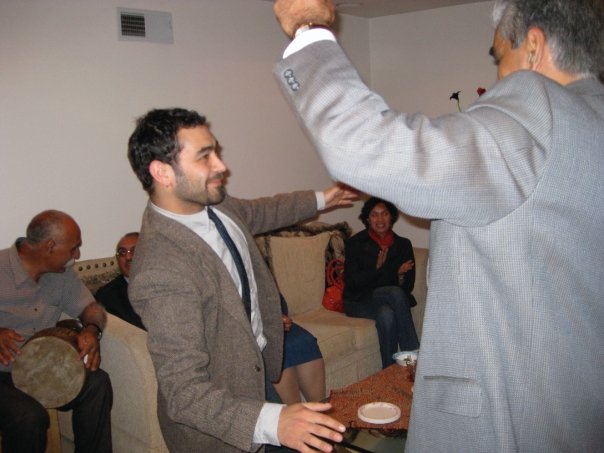
pirates are hot. but aside from that, they might have history, rationale, and even some politics. but the standard news sources wouldn't have you think they were anything but mindless thugs on a mission for cash, with an appetite for american blood. a read-through of some of today's stories gives little perspective on the Somali pirate situation. the new york times, bbc, wall street journal, and even the cape times make sure to avoid asking any questions about the reasons why so many ships are coming under fire and occupation in this very particular part of the world. the only commentary to be easily accessed in the press is that which "knows" that all these thugs want is money, and that when they want money, it's wrong.
i wanted to get another take on this. the issue is back on the front page, but the story has been hot for about a year now. i know where i come from, and i know that when all else fails, indymedia can get me started on some real journalism. johann hari wrote an excellent editorial on the situation on saturday. his main point is that pirates, and trends in piracy, have historically emerged from patterns of economic subjugation. william scott, a british seaman-turned-pirate from the 18th century (i think it's 18th), made an apparently emblematic statement about his forays into piracy: "What I did was to keep me from perishing. I was forced to go a-pirating to live." Scott was among the many poor young men of england who were basically conscripted into the merchant marine service in his time. Their captains were the same who sailed ships full of Africans across the atlantic. The story of William Scott and other pirates of the "golden age" can be found in Marcus Rediker's book, "Villains of All Nations."
hari's article also sent me to another source for analysis and news i've often overlooked: the indigenous press. on sunday, Muuse Yuusuf, a Somali writer for wardheernews.com, wrote the story i've been looking for: "The Armada is not the solution." Yuusuf, in old-school journalistic fashion, called out other media for not looking deep enough into the story. according to Yuusuf--and the UN??--rampant illegal fishing by international companies (and somalis, i suppose) combined with reckless toxic waste dumping off the coast of somalia by non-somali entities (corporations, governments, and the italian mafia) have had a profound negative impact on the smaller-scale fishing that somalia's coastal communities rely on. you have one of the world's most destitute nations getting further stripped of a reliable resource, by law-breaking industrial fishers. and this isn't the highway robbery form of resource theft ("gimme yo shit..."), this is the "gimme yo shit, and i'm also going to degrade your surf to the degree that you won't ever be able to get what you had again from it," form of imperial resource robbery. al jazeera ran a great summary of this side of the story as well, last october.
according the al jazeera and wardheer.com pieces, numerous pirates have made statements to the effect that the piracy has two principal motivations: 1. to recoup some of the immediate and long-term financial losses resulting from other nations' overfishing and waste dumping in somali waters--by way of collecting ransoms, and 2. to recoup some of the self-respect that washes away when other nations over-fish and dump toxic waste all through your national waters--by way of revenge violence.
my kneejerk is always to sympathize with whatever faceless group from an oppressed nation is being demonized in the press. but don't hate, i'm a just a pavlovian leftist. it seems every time there's a new crazy globally-southern movement with guns, the cnn wants to tell me they don't have a right. The fishermen in somalia have a different opinion, according to Yuusuf's report. i agree "mr. hussein" (whomever you are), the western media is, "talking only about the piracy problem in Somalia, but not about the destruction of our coast and our lives by these foreign ships."
the ships are no effigy. they are a direct representation of the still brutal, still chilling, still functioning programme of resource colonization going on in africa. what an opportunity the somali pirates have seized upon. they have raised the profile of their plight (well, their response at least) to that of an international crisis, raised some capital, and actually interfered with the global trade regime which has systematically screwed them. what if they weren't the only ones who were so ambitious?
(photo credit: Jean-Marc Bouju/AFP/Getty Images, from The State of the Environment in Somalia: A Desk Study. United Nations Environment Programme )


No comments:
Post a Comment